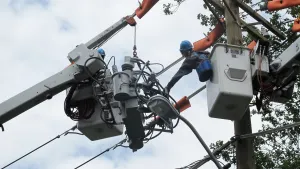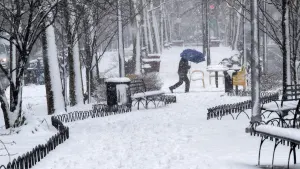More Stories
Severe weather brings along the risk of straight line winds, tornadoes and downbursts. What are the differences between them?
As the remnants of Debby approach, it brings along with it the threat of severe weather. One of the main concerns, beyond flooding from dumping rain, is the threat of dangerous wind.
There are several kinds of wind associated with severe thunderstorms.
Straight line wind is the most common type of damaging wind in a thunderstorm. These are a sudden push of air from a thunderstorm and these winds are non-rotating, unlike a tornado.
Tornadoes are not common in thunderstorms, but there is a chance of seeing some. These are violently rotating columns of air. The strength of a tornado is determined after the fact. So, when there is a tornado, you do not know if it is a weak or strong one. Regardless, seek shelter immediately.
Another type of damaging wind during tornado winds are downbursts and microburst. These area a sudden and aggressive sinking of air that causes wind to hit the ground and spread out and radiate. Downburst and microbursts cause more widespread damage.
Be sure to heed all watches and warnings. But if a tornado watch or warning is issued, how can you know the difference?
A watch indicates that the conditions and ingredients are right for dangerous weather to occur—a warning means that a radar or a trained person has seen it so that is occurring, and you need to take immediate shelter.
For tornadoes and severe thunderstorms, make sure that you find the most interior and lowest level of your home for shelter. Remember to bring a blanket (to protect you from flying debris) and to wear shoes to protect your feet.
Also remember to download the News 12 app so that you can continue to receive weather alerts even if you lose power.
More from News 12

AAA warns of power outages and dangerous travel as nor’easter approaches

Power center: Electric outage resources
1:40

NYS Emergency Management: Search and rescue teams will be on Long Island during major snowstorm

Gov. Hochul declares state of emergency ahead of Sunday's winter storm
1:44

‘I came on a mission.’ Residents prepare as heavy snow targets Long Island
